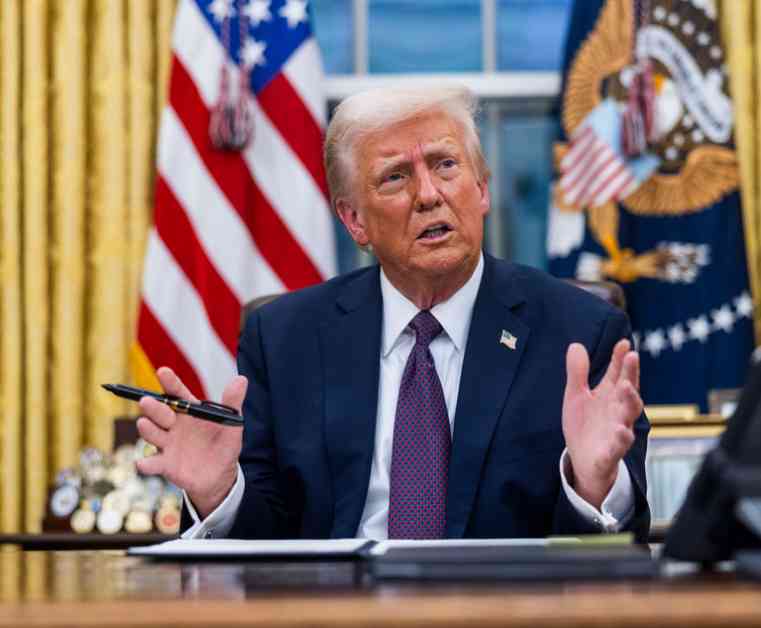A legal battle is brewing, pitting two powerful entities against the Trump administration in a bid to preserve the U.S. Agency for International Development (USAID). The American Foreign Service Association and American Federation of Government Employees have taken the bold step of filing a lawsuit aimed at halting President Donald Trump’s efforts to dismantle the USAID. The lawsuit calls for the restoration of USAID’s funding, operations, and staff, representing a critical juncture in the ongoing debate over the future of foreign aid and international development efforts.
Challenging the Administration
The crux of the lawsuit revolves around the claim that the actions taken by the defendants to dismantle USAID lack the necessary congressional authorization. This legal challenge underscores the broader tensions between the executive and legislative branches of government, shedding light on the complexities of policymaking in a divided political landscape. By seeking a temporary restraining order to reverse the administration’s decisions, the plaintiffs are wading into uncharted legal waters, setting the stage for a high-stakes legal showdown.
Expert insights suggest that this legal maneuver represents a significant test of the constitutional limits of executive power, with potential ramifications for the future of U.S. foreign policy. The intricacies of the case highlight the delicate balance of power within the federal government, raising fundamental questions about the separation of powers and the role of the judiciary in overseeing executive actions. As the legal battle unfolds, observers are closely watching to see how the courts will navigate this complex terrain and what implications the outcome may have for the administration’s broader policy agenda.
Implications for Global Aid Efforts
Beyond the legal wrangling, the lawsuit has far-reaching implications for the future of global aid efforts and international relations. The USAID plays a crucial role in advancing U.S. interests abroad, supporting development projects, humanitarian assistance, and diplomatic initiatives across the globe. The potential dismantling of USAID could have ripple effects on vulnerable populations, diplomatic relationships, and strategic alliances, reshaping the landscape of international aid and cooperation.
Against this backdrop, the legal challenge takes on added significance, reflecting broader debates over the role of the United States in global affairs and the moral imperatives of humanitarian assistance. By shining a spotlight on the administration’s efforts to curtail USAID’s operations, the lawsuit underscores the stakes involved in shaping U.S. foreign policy and upholding America’s commitments to international development. The outcome of this legal battle could have lasting repercussions for how the United States engages with the world and fulfills its obligations as a global leader.
In conclusion, the lawsuit challenging the Trump administration’s USAID stop-work orders marks a pivotal moment in the ongoing dialogue over U.S. foreign aid policy. As legal arguments are presented and decisions are rendered, the fate of USAID hangs in the balance, with far-reaching consequences for global aid efforts and international relations. The legal battle underscores the complexities of governance, the dynamics of power within the federal government, and the enduring importance of upholding democratic norms and constitutional principles. As the case unfolds, it will serve as a litmus test for the resilience of American institutions and the commitment to upholding the rule of law in an increasingly turbulent political climate.















